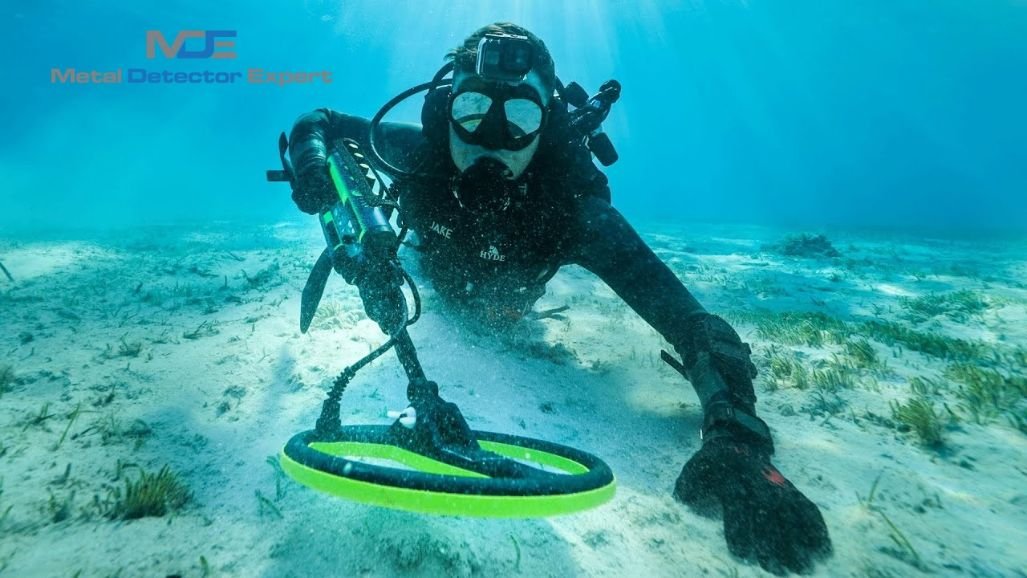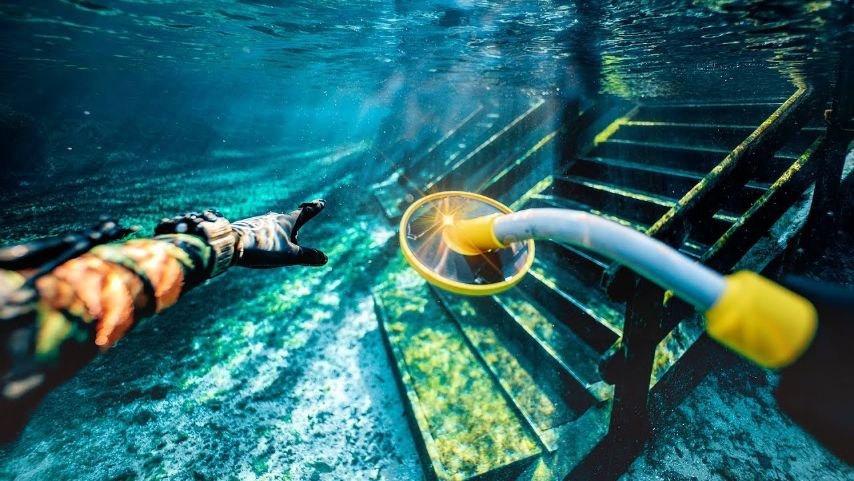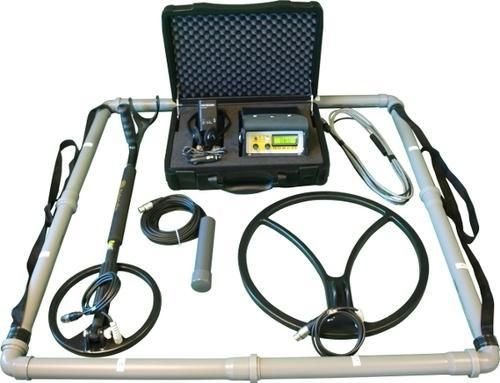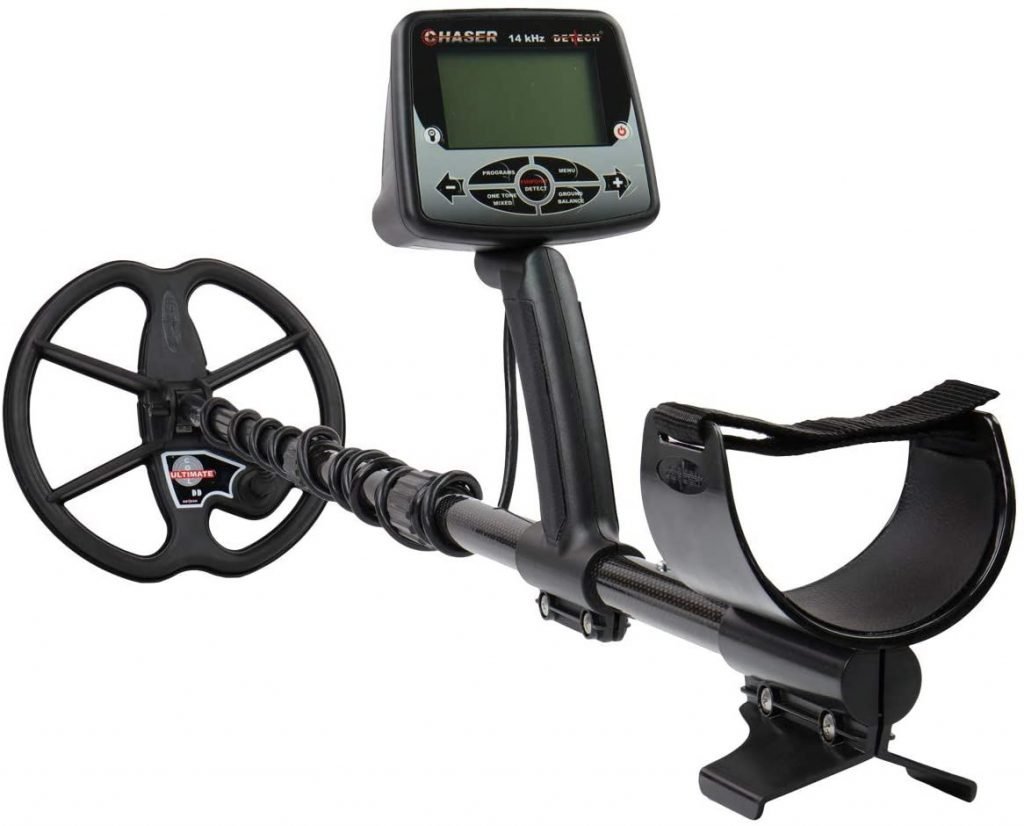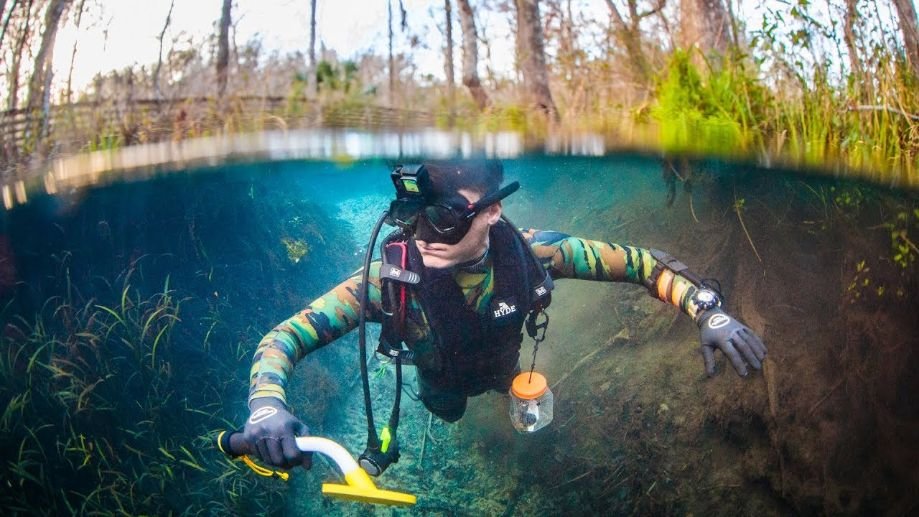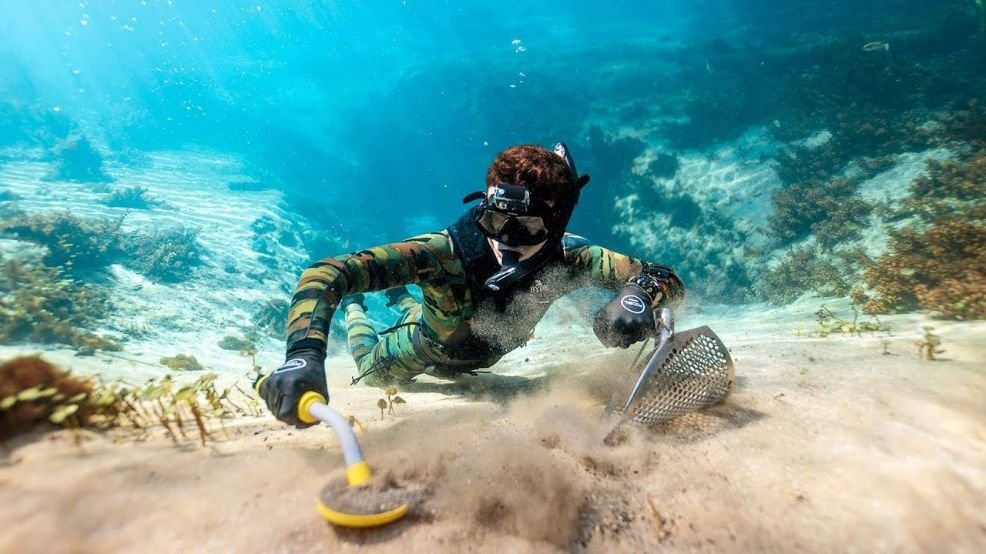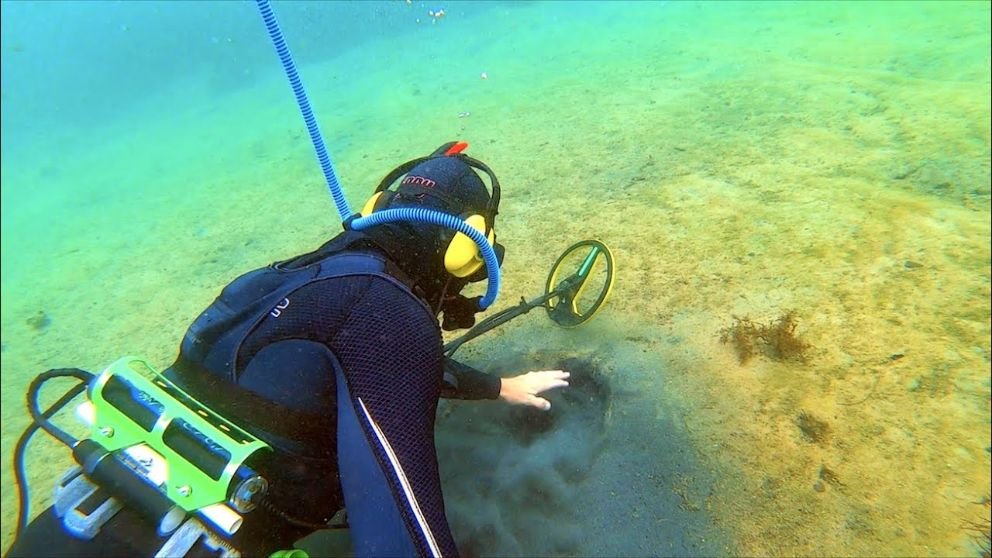Can I Use My Metal Detector In Water?
Are you wanting to find some serious treasure? Underwater may be your best choice!
But will your metal detector survive being submerged underwater? Will a metal detector work underwater?
In short, some will work! A lot of metal detectors aren’t waterproof, however, there is an increasing number that is waterproof.
On your search, you will see that some are designed to work under 10 feet of water and some other models can work even deeper than that.
If you want to take your metal detector scuba diving, providing you get the correct model, you can do that!
What Are The Different Types Of Underwater Metal Detectors?
Waterproof metal detectors have to work differently from standard metal detectors as they have to be able to work through water, wet sand, and other types of different ground.
When it comes to the technology and types of underwater metal detectors – there are two – Pulse Induction (PI) and Very Low Frequency (VLF).
Let’s start with Pulse induction metal detectors. They work by sending electronic pulses, these pulses don’t get affected by the water or wet minerals.
Electronic pulses are sent from PI metal detectors. These pulses are sensitive to precious metals and can detect them through the mineralized ground.
A pulse induction detector is great for people wanting to hunt in saltwater as they aren’t affected by the mineralization.
One downside to this type of metal detector is that they tend to find a lot of trash too so you may find yourself stopping to dig unwanted things quite often.
As time goes on, you will get more familiar with your sensitivity settings on your detector and you will be able to minimise this.
If you want to know how to get the best out of your setting, we can help!
If you are wanting to use a metal detector on the beach or be able to go deeper then pulse induction metal detectors can be a fantastic choice.
So now let’s move onto very-low-frequency metal detectors. These are designed to be operated through water and wet surfaces. Unlike PI metal detectors, VLF detectors do get affected by mineralized ground.
However, there is always the option to adjust the sensitivity settings to make your metal detector work for you.
A VLF detector will be great for detecting coins and jewellery as they are very sensitive it but they aren’t sensitive to small pieces of lesser metal so it depends on what you are hoping to find on your hunt as to whether a VLF metal detector will work for you.
If you’re looking for your first metal detector, there are some great ones out there!
Where Should I Use My Metal Detector?
Before you jump in and purchase an underwater metal detector, you will need to think about where you’ll be using it, what type of ground you’ll be covering, and what you’ll be hoping to find.
When people think about waterproof metal detectors, they can be thinking about several things:
- A metal detector may have a waterproof coil. This means that it will work fine in shallow water. However, you can’t submerge it. Quite often you will hear these metal detectors being referred to as water-resistant or weatherproof.
- One that can be fully submerged is one that has a waterproof coil and control box. You won’t be able to take these very deep but they do work brilliantly in shallow waters. So if you want to use your detector on a beach or a shallow lake then this could be a good option.
- If you want to be able to go diving with your metal detector then you need to look for one that has a waterproof coil and control box. Some of these models can go up to depths of 200 feet.
What Type Of Metal Detector Do I Need?
Are you after a detector to use mostly on land but occasionally in shallow water?
Then you may get by with a detector that has a waterproof coil. Throwing caution to the wind, you won’t be able to get the control box wet – that’s very important!
What about if you want to use your detector in rivers, lakes, and at the shore?
If this is where you can see yourself spending a lot of your hunting time, then you should consider a metal detector that can be submerged fully. This is especially true if you’re at the shore as waves can come up unexpectedly and catch you out!
You may also want to consider whether you’ll be using the metal detector on land too. If so, consider how well it will perform on land, as you will want it to be effective there too!
Can I Go Scuba Diving With A Metal Detector?
You most certainly can!
For scuba diving, you will need a truly waterproof detector. Be sure to check the depth rating too as this will need to be high.
Metal detectors that are designed to be used for scuba diving can feature a vibrating setting and this can be very useful to know when you’ve found something you may wish to investigate.
Can Metal Detectors Be Used Underwater Like Airport Metal Detectors?
Yes, metal detectors can be used underwater like airport metal detectors. They can detect various metals, including aluminium foil, just as effectively underwater as they can in an airport setting. Whether searching for lost jewelry or searching for underwater artifacts, metal detectors are a valuable tool for underwater exploration.
Tips For A Successful Time Metal Detecting
Shallow water is your friend.
Providing you have the correct metal detector for it, shallow water can prove to be a very successful place to hunt.
You are likely to find valuable things – we’re talking gold rings and coins, plus many other things.
As people change into their swimsuits or simply take layers off on the beach, it’s easy for change to slip out.
Just like it’s easy for rings to slip off in the water. This is what makes the shoreline an attractive place to spend some time with your metal detector.
One big advantage is that there tends to be a lot less trash for you to work through to find the good stuff!
I should be clear about what I mean by shallow water. I’m talking about going up to the waist to get really widen your chances of finding good treasure. Do you want to increase your chances of finding gold?
So do be sure to have a metal detector that is capable of handling this.
Know The Current Of The Water
Knowing how the current is moving can increase your chances of success.
Note whether it is moving in or out. Over time you will be able to read the areas where things may get trapped. Rocks and seaweed are good targets.
Use The Tide To Your Advantage
Make sure that you’re aware of the tide. When you are setting out on your hunt, aim to get there at least two hours before low tide.
The reason being is you’ll be able to search as the tide is going out. You will often discover that the best place for finding exciting things is in the water that is slightly deeper.
When the tide is low, you are able to search the places where people swim when the tide is high.
How To Search Shallow Water
In many ways this is very similar to beach detecting. However, what you have to keep in mind is that the waves are moving under your feet.
This means that you have to move quickly when you find a target.
The best way to do this is to plant one foot firmly just behind the target area and ideally, keep it there under you have dug up the target.
Now that the target is marked with your foot, you can get the scoop in the right area. Scoop a decent amount of sand out and then run your metal detector over the area again to ensure that your target is still there.
If it is, great! Dump your scoop of sand and gather another scoopful. As water will be moving around the area, you may need to scoop a few times. It’s important that you always check the hole with your detector to make sure that your target is still there. If not – check your scoop!
Use The Ocean
Though it may be daunting to start with, the ocean can be the most fruitful place to hunt.
They are very different to searching in ponds or lakes. This is down to the fact that the ocean is always moving – especially after a storm.
All of this opens up the possibility that you will find some quality goods that have recently been dropped. However, what you are likely to find is things that were lost somewhere different and have been moved in the sea.
With a lake or a pond, there isn’t a great deal of movement so this can limit what you can find.
If you do want to hunt at lakes or ponds always try to go where people enter the water or where they are likely to be.
Overall underwater metal detecting can be a fun hobby and potentially very rewarding.
The key is to get the most out of it is to find the metal detector that will suit you.
A metal detector advertised as ‘waterproof’ doesn’t mean it’ll work well underwater. Equally, a metal detector advertised as ‘submersible’ doesn’t mean it’s designed to be taken diving.
Research is vital!
The best thing you can do is to consider where you’ll be using your metal detector. What type of water it will, salt or fresh? How deep will you be wanting to take it?
Ask yourself those questions and you’ll be on your way to finding yourself the perfect metal detector!
What has been your best find so far?
